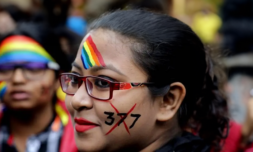In a surprising U-turn, India’s National Medical Commission has revised the medical curriculum, reintroducing controversial topics related to sexuality and gender. This decision has sparked a debate on education, LGBTQ+ rights, and the intersection of law and medicine in the country.
India’s apex medical education regulator, the National Medical Commission (NMC), has recently made headlines with its decision to revise the forensic medical curriculum for undergraduate students.
Raising eyebrows among progressive circles, the NMC has reintroduced controversial topics including ‘sodomy and lesbianism under the category of unnatural sexual offences’ and the ‘importance of hymen, definition of virginity and defloration, and its legitimacy and medico-legal importance.’
This change effectively rolls back modifications made in 2022 that sought to make medical education more inclusive and LGBTQ+ friendly. These topics had been removed following directives from the Madras High Court, which had called for a more scientific and less discriminatory approach.
Perhaps most concerning for the LGBTQ+ community and its allies is the erasure of a distinction between consensual queer sex and offenses such as incest and bestiality.
This blurring of the lines between consensual acts and criminal behaviour represents a significant setback in the fight for LGBTQ+ rights and dignity in India.
Additionally, the move reflects a complex interplay between medical education, legal frameworks, and societal attitudes.
The revised syllabus will now educate on new laws – namely the Bharatiya Nagarika Suraksha Sanhita (BNSS), Bharatiya Nyay Sanhita (BNS), and Bharatiya Sakshya Adhiniyam (BSA) – covering cases that are related to rape, injury, and protecting children from sexual offenses.




















